PFLAG National calls Paxton's demand for gender-affirming care records unconstitutional
- Oops!Something went wrong.Please try again later.
A nationwide LGBTQ+ organization operating in Texas is pushing against what it calls an "outrageous and unconstitutional demand" from state Attorney General Ken Paxton in asking for information on those trying to assist transgender youth to receive gender-affirming medical care, according to court documents.
In a filing Wednesday evening, PFLAG National asked a Travis County state District Court to issue an injunction to stop Paxton's civil investigation demand, arguing that the attorney general's request goes beyond his authority in trying to obtain information about the group's effort to help transgender adolescents and their families.
"From the OAG’s multiple demands, it appears that the OAG (Office of the Attorney General) is seeking to determine which Texas families are seeking to access gender-affirming care for their transgender adolescents," attorneys for the LGBTQ+ advocacy organization wrote in their filing. "If the OAG is able to obtain data from these multiple sources, it is likely that the aggregated information about transgender youth and their families would be sufficient to identify them particularly."
Hours after a brief hearing Friday in Travis County, state District Judge Maria Cantú Hexsel issued an injunction prohibiting the state from "taking any adverse action" based on the records demand as the case is being considered.
The case is scheduled for a hearing 9 a.m. March 25 in Travis County Civil District Court.
David Shatto, representing the attorney general's office, argued the state has every right to request information from the group as part of its broader effort to ferret out noncompliance with the state's recent prohibition on gender-affirming care for adolescents.
"And so it's our belief that PFLAG has knowledge that would help further our investigation related to these potential problems and activities," Shatto told the court. "And the state of Texas has broad authority to demand documents from companies."
Alissa Pollard, an attorney for PFLAG, was in strong opposition to that argument during the hearing, taking issue with the scope of the state's request, a Paxton news release accusing the organization of committing fraud and the overall impact of the inquiry on the members of the group.
"The idea that there is no harm here is outrageous," Pollard said. "The harm is already happening; there is a chilling effect that is happening to PFLAG and to its members."
With 18 chapters and roughly 1,500 members across Texas, PFLAG said without the injunction it would be forced to comply with the "unconstitutional" request from Paxton's office and jeopardize revealing the private communications and identities of its members under threat of further prohibitions on its ability to work in the state.
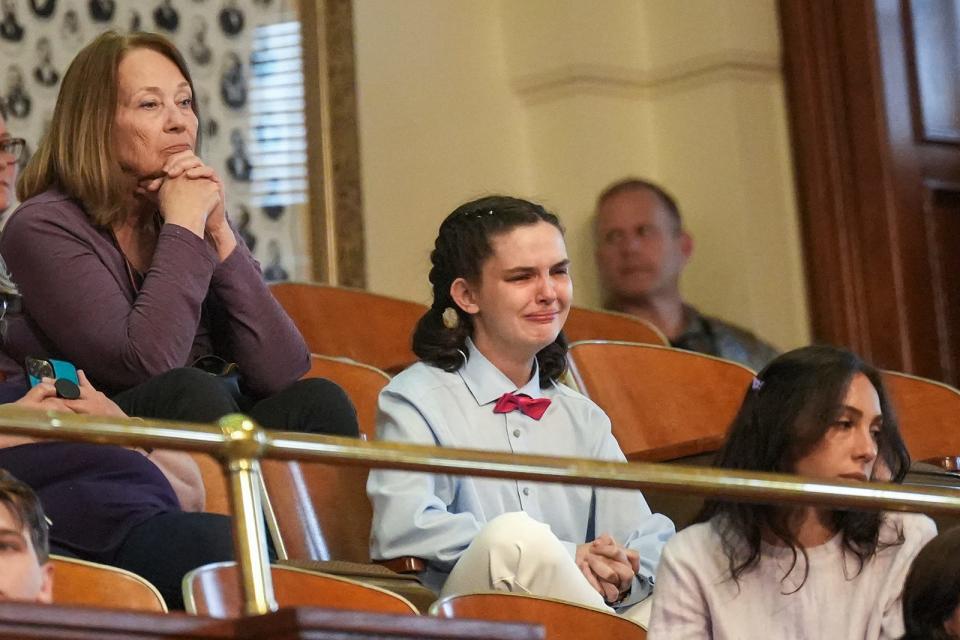
“This mean-spirited demand from the attorney general’s office is petty and invasive, which is why we want the court to put an end to it,” said Brian Bond, CEO of PFLAG National. “Across races, places and genders, our families and communities are stronger when we are free to come together."
Receiving initial notice of Paxton's request on Feb. 9, PFLAG said the information the attorney general is seeking focuses on the organization's efforts to find ways to "maintain care" as the state has recently cracked down on gender-affirming medical treatments for youth.
More: Is Texas' ban on gender-affirming care for minors constitutional? Supreme Court hears case
In a statement Thursday afternoon, Paxton said he is going after PFLAG for allegedly hiding "incriminating documents" that he feels will answer the question of whether "medical providers are committing insurance fraud in order to circumvent" Senate Bill 14, which lawmakers passed last year to prohibit doctors in Texas from providing certain gender-affirming medical treatments — including puberty blockers, hormone therapy and certain surgeries — to minors experiencing gender dysphoria, a condition in which a person’s gender identity doesn’t match their sex at birth.
“Texas passed SB 14 to protect children from damaging, unproven medical interventions with catastrophic lifelong consequences for their health,” Paxton said in the statement. “Any organization seeking to violate this law, commit fraud, or weaponize science and medicine against children will be held accountable.”
Major medical associations, including the American Academy of Pediatrics, the American Medical Association and the American Psychiatric Association, support the provision of developmentally appropriate and individualized gender-affirming medical care for transgender youth, saying it can be lifesaving and medically necessary.
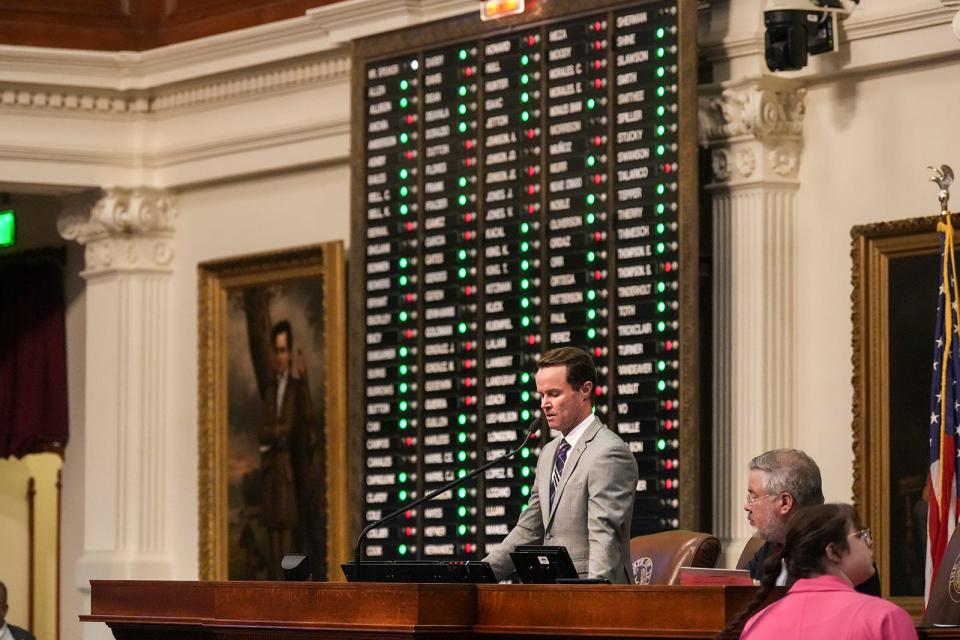
Several families and medical professionals in July filed a challenge to SB 14 in Travis County state District Court seeking an injunction, which the court granted before a state appeal to the Texas Supreme Court allowed the ban to take effect Sept. 1 while the high court deliberates the law's constitutionality.
Earlier in February, the state Supreme Court heard oral arguments in the lawsuit against SB 14, during which lawyers representing the families and organizations, including PFLAG, argued the state passed prohibitions on gender-affirming care not out of a concern for patients but rather to discriminate against transgender people.
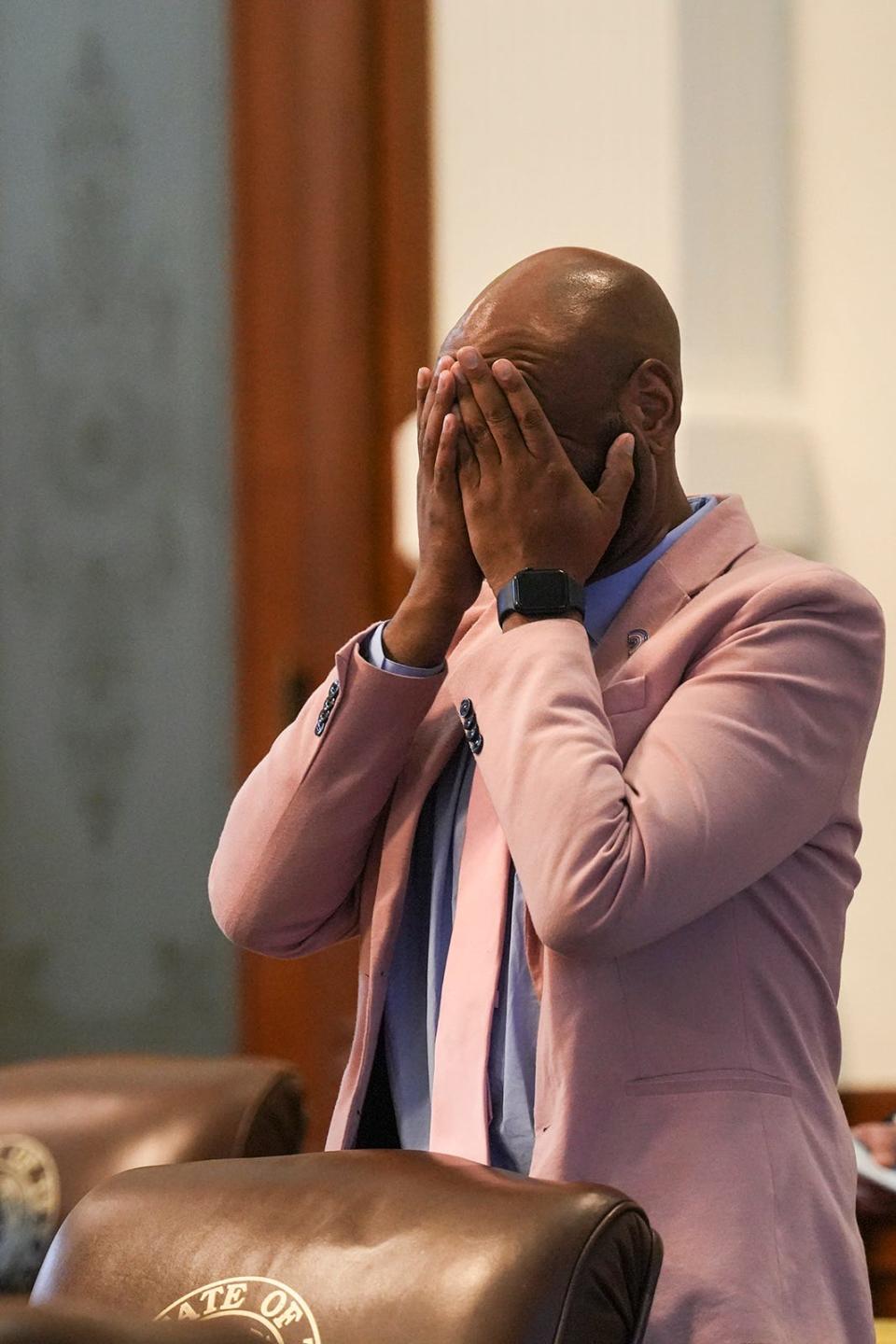
"This is not a situation where the Legislature has drawn lines based on risk; it's simply drawing lines based on the purpose for which you're receiving the care, saying the care is not available to individuals who are transgender," Kennon Wooten, an attorney for the families, said during the hearing.
The state has argued that gender-affirming care treatments are ineffective and potentially dangerous in the long-term for minors, largely tossing aside the discrimination concerns and effects on parents' right to seek medical treatment for their children.
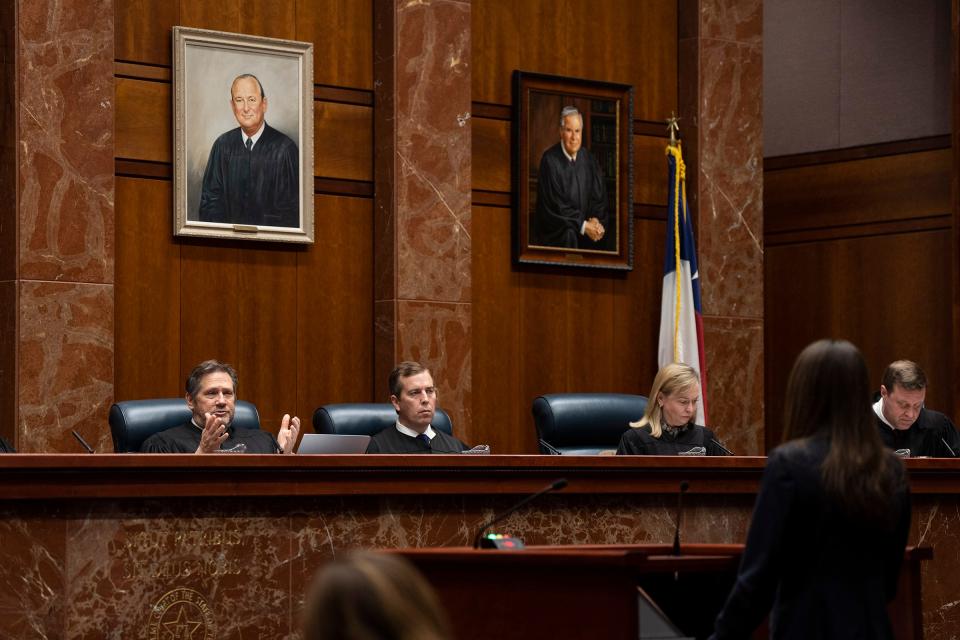
"Parents are still the ones who choose between available medical intervention or decline available medical intervention," said Natalie Thompson, who represents the state in the case. "What Senate Bill 14 does is take certain medical treatments off the table entirely; that's not interfering with a parent's right."
In response to Paxton's information request, which had a return deadline of Monday, PFLAG National said the overture is an effort to influence the discovery process in the other gender-affirming care lawsuits the organization is involved with and violates its members' rights to free speech and protection from unconstitutional searches and seizures.
"The goal of the OAG in serving these demands is neither to enforce Texas law, nor to protect Texas consumers," the filing reads. "These demands are a clear and unmistakable overreach by the OAG in retaliation for PFLAG successfully standing up for its members, who include Texas transgender youth and their families."
Outside of the high court's consideration of SB 14 and the new complaint filed Thursday, PFLAG is also involved in a challenge filed last year to a Paxton legal decision that allowed Gov. Greg Abbott in 2022 to issue a directive to the Texas Department of Family and Protective Services to investigate instances of adolescent gender-care as child abuse.
Under the decision, which is currently pending based on an appeal seeking an injunction, Paxton and Abbott required the state agency to “conduct a prompt and thorough investigation of any reported instances” of “sex-change procedures.”
Paxton's requests to PFLAG also come after several efforts by the attorney general's office to obtain medical records of Texas residents who might have received gender-affirming care at out-of-state hospitals in Seattle and Georgia.
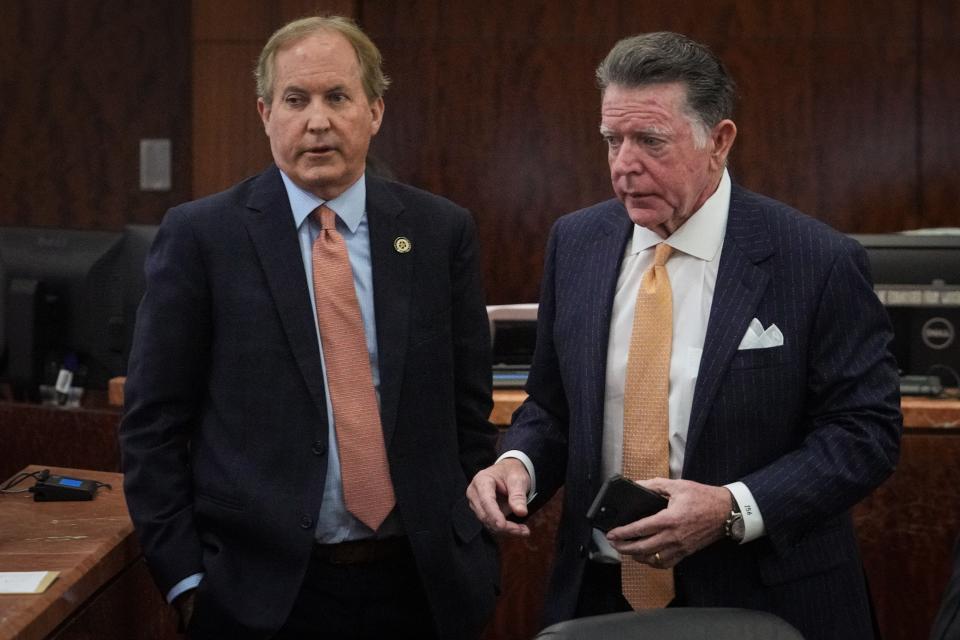
In December, Seattle Children's Hospital sued the attorney general's office over Paxton's requests, arguing that Texas officials don't have jurisdiction to require records on procedures and consultations conducted outside the state. QueerMed, a Georgia telehealth clinic, also received a civil investigative demand Nov. 17.
In requesting records dating back to 2022, Paxton's office cites a state provision that forbids companies from making "misrepresentations regarding Gender Transitioning Treatments and Procedures and Texas law" in advertisements sent to Texas residents.
“Transgender Law Center will continue to fight on behalf of PFLAG National and its members against the continued unconstitutional actions of the Office of the Attorney General," said Lynly Egyes, legal director for the center. "This is just another cruel attempt to circumvent the legal system and target families and friends who support transgender people.”
Statesman reporter Bayliss Wagner contributed to this report
This article originally appeared on Austin American-Statesman: LGBTQ+ advocates fight Texas AG's request for gender care records

